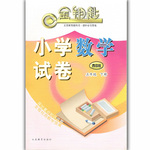题目内容
 The largest earthquake in Japanese history 31 in northern Japan at 2:46 pm of March 11, 2011. A tsunami (海啸) followed, causing major flooding in 32 areas of Japan, as well as many strong aftershocks(余震). So far more than 13,000 people
The largest earthquake in Japanese history 31 in northern Japan at 2:46 pm of March 11, 2011. A tsunami (海啸) followed, causing major flooding in 32 areas of Japan, as well as many strong aftershocks(余震). So far more than 13,000 people
33 with about 14,000 people missing. When news of this disaster(灾难) 34 China, many Chinese people expressed their35 for Japan and the Japanese, remembering that Japan helped the Chinese during China’s 2008 Sichuan Earthquake.
31. A. was happened B. happened C. had happened D. happening
32. A. many B. much C. a lot D. lots
33. A. lost their life B. lose their lives
C. have lost their lives D. have been died
34. A. reaches B. is reached C. got D. reached
35. A. support B. pride C. pleasure D. prediction
【文章大意】本文主要讲述的是日本发生了历史上最大的地震,地震伴随着海啸,至今已有13,000人死亡,14,000人失踪。当消息传到中国时,中国人民对其表示极大的支持,在2008年汶川地震时,日本也帮助了中国。
31.B【解析】根据文章可知,全文使用过去时态,所以用“happened”表示发生。故本题选B。
32.A【解析】根据题意:随之而来的洪水跟很多余震一样造成了日本很多地方的洪水。文中“as well as many strong aftershocks”表明此处填“many”故本题选A。
33.C【解析】根据上下文,到目前为止,13000人死亡,14000失踪。故本题选C。
34.D【解析】本题考查动词的辨析。reached表示到达,get为不及物动词,后面加to也表示到达。故本题选D。
35.A【解析】本题考查名词的辨析。support表示支持,pride表示自豪,pleasure表示乐事、乐趣,prediction表示预言。根据题意:很多中国人对日本及日本人表达了支持。故本题选A。

 金钥匙试卷系列答案
金钥匙试卷系列答案